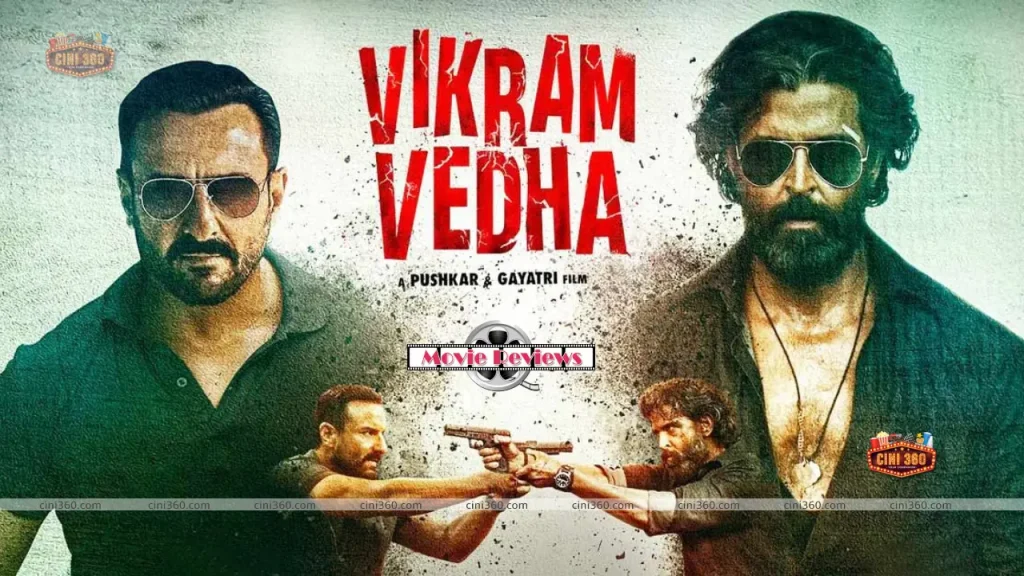The film by Pushkar and Gayathri is a refreshing take on the battle between good and evil, told flamboyantly with well-developed characters and performances.
Vikram Vedha, yet another remake of a south Indian blockbuster, demonstrates that when writing a mass entertainer or a crowd-pleaser, it is not necessary to water down the depth of characters and demystify storytelling.
The wife-husband director duo of Gayatri-Pushkar, who also wrote and directed the original, have transformed the intelligent-incorruptible king into an honest police officer Vikram (Saif Ali Khan), who sees the world in black and white. The astute ghost transforms into the dreaded gangster Vedha (Hrithik Roshan), who defies the rule of law almost on a daily basis and puts the enforcer’s moral compass to the test by telling him stories from his life that navigate the grey areas between crime and punishment.
Gayatri-Pushkar questions encounters in which law enforcers suffocate innocent citizens and justify such action as collateral damage for the greater good in three well-knit, deftly crafted stories. What happens if the shoe is on the wrong foot? Do the bullets that pierce the innocent come back to haunt those who fire them? These appear to be off-the-cuff questions for a mainstream entertainer to address, but Gayatri and Pushkar respond to them with sensitivity and urgency within the context of a festival tentpole.
The tribute to Raj Kapoor via two of his timeless songs not only adds to the flamboyant storytelling, but it is also an interesting way to acknowledge the master’s influence on the nature vs nurture debate that Gayatri-Pushkar addresses. Vikram Vedha’s premise is also reminiscent of Raj Kapoor’s 1951 film Awaara, in which the judge repeatedly invokes the idea that those born to criminals end up on the wrong side of the law. Interestingly, Radhika Apte, like Nargis, plays a lawyer. Priya (Apte) represents Vedha, and her cop husband believes that his advocate wife is being manipulated by the dreaded gangster against him, much like the judge, Rita’s father (Prithviraj Kapoor) alleges in Awaara.
Hrithik plays Vedha, a criminal who doesn’t want his younger brother Shatak (Rohit Saraf) to cross the line of law, in a setting reminiscent of one of the Amitabh Bachchan-Shashi Kapoor moral clashes of yesteryear.
Instead of playing a Greek god, the actor tries his hand at playing an Indian anti-hero in a larger-than-life scenario and consistently delivers, both in terms of performance and screen presence. He almost takes on the appearance of a modern-day Betaal under the watchful eye of cinematographer P.S. Vinod. Along the way, he demonstrates that he doesn’t need female support when it comes to dancing. In the film’s item number, he’single-legedly’ makes the audience tipsy while drenched in liquor.
When Gayatri and Pushkar have to tie up the stories, the flaws in the writing become apparent. It appears that in serving the myth, they lose sight of the larger arc of the story that is unfolding in real time. It irritates me especially in the third act, when the motivations of Shatak and Chanda (Yogita Bihani), a crucial cog in the story, demand a little more clarity, and the real villain of the piece, a little less predictability.
Nonetheless, in the Ramlilas week, Vikram Vedha comes across as a refreshing battle between the good and the evil, with Ram and Ravan not being cardboard characters.
Vikram Vedha is currently running in theatres




